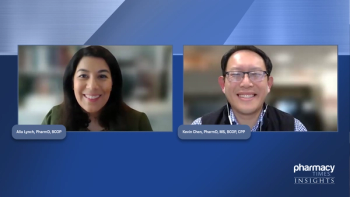
Common Causes of RSV Vaccine Hesitancy
Panelists discuss hesitancy surrounding the new RSV vaccine, highlighting factors such as uncertainty about safety and effectiveness, cost concerns, limited health literacy, language barriers, and lingering skepticism fueled by the COVID-19 pandemic, emphasizing how pharmacists can address these issues through tailored education, insurance guidance, and culturally sensitive communication to build patient trust and improve vaccine uptake.
Episodes in this series

Hesitancy around the respiratory syncytial virus (RSV) vaccine stems from a variety of factors, many tied to the newness of the vaccine itself. Because RSV vaccination has only been available for a short time, many patients are uncertain about its safety and effectiveness. This lack of familiarity often leads to questions like “Is it really studied enough?” or “Why do I need this now?” Additionally, cost concerns play a significant role, especially among older adults who may recall expensive co-pays for other vaccines like shingles. The fear that this vaccine will also be costly—potentially every year—can discourage patients from getting vaccinated. Pharmacists can help by checking insurance coverage beforehand and clarifying whether the vaccine is a 1-time dose or requires repeated administration.
Beyond cost and newness, social and community factors contribute to hesitancy. In areas with lower health literacy or socioeconomic challenges, patients may have limited access to information via television, internet, or social media, making it harder for them to learn about RSV and its vaccine. Language barriers also complicate communication, creating challenges for patients and health care providers. Pharmacists and their teams who take extra time to build trust, use translators or bilingual staff, and provide clear education can make a significant difference in helping patients feel comfortable with vaccination. Tailoring communication to meet patients’ specific needs is key to overcoming these obstacles and addressing implicit hesitancy.
Lastly, the broader context of the COVID-19 pandemic has intensified vaccine hesitancy. The rapid development and changing guidance around COVID-19 vaccines were highly visible and often confusing to the public. This transparency about evolving science, although necessary, also led to misinformation spreading through communities and social media, further eroding trust. As a result, patients may approach new vaccines with skepticism, seeing them through the lens of past uncertainty. Understanding these interconnected barriers helps pharmacists develop compassionate, informed strategies to support patients in making confident vaccine decisions.
Newsletter
Stay informed on drug updates, treatment guidelines, and pharmacy practice trends—subscribe to Pharmacy Times for weekly clinical insights.


























